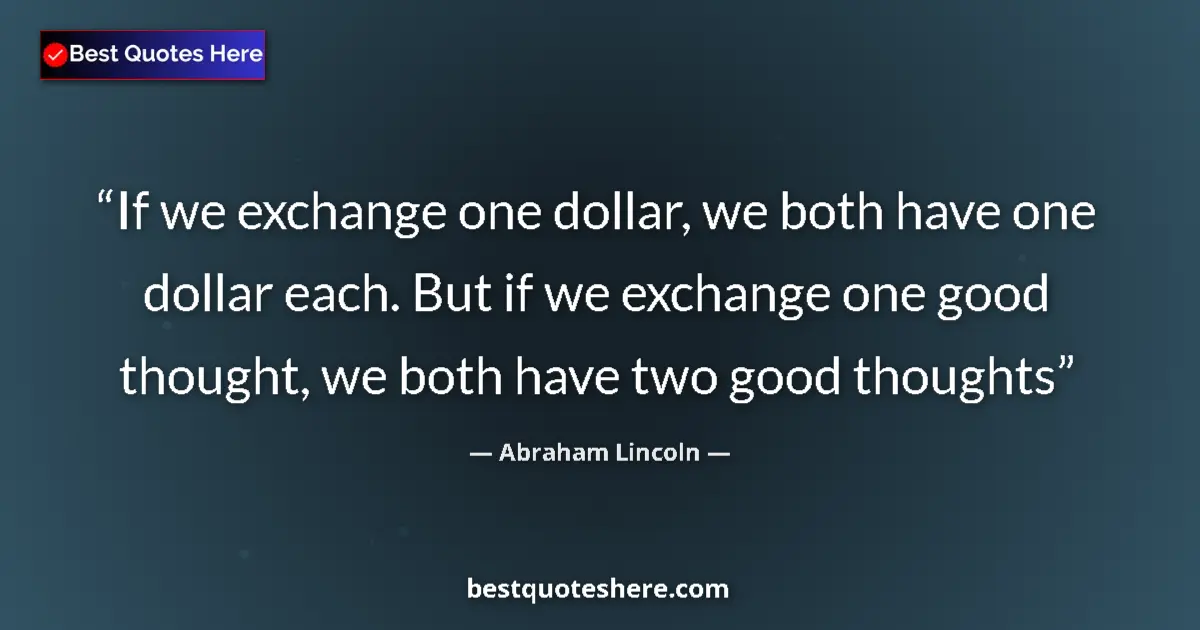"If we exchange one dollar, we both..." - Quote by Abraham Lincoln
If we exchange one dollar, we both have one dollar each. But if we exchange one good thought, we both have two good thoughts

More by Abraham Lincoln
“I have always hated slavery, I think, as much as any abolitionist. I have been an Old Line Whig. I have always hated it, but I have always been quiet about it until this new era of the introduction of the Nebraska Bill began.”
“No client ever had money enough to bribe my conscience or to stop its utterance against wrong, and oppression.”
“The foregoing history may not be precisely accurate in every particular; but I am sure it is sufficiently so, for all the uses I shall attempt to make of it, and in it, we have before us,the chief material enabling us to correctly judge whether the repeal of the Missouri Compromise is right or wrong.”
More on Ideas
“To truth only a brief celebration of victory is allowed between the two long periods during which it is condemned as paradoxical, or disparaged as trivial.”
“What is the real function, the essential function, the supreme function, of language? Isn't it merely to convey ideas and emotions? Certainly. Then if we can do it with words of fonetic brevity and compactness, why keep the present cumbersome forms?”
“To develop the creative attitude, analyze and focus on the wanted SOLUTION; seek out and fill your mind with the FACTS; write down ideas, both sensible and seemingly wild; let the facts and ideas simmer in your mind; evaluate, recheck, settle on the creative ideas.”
More on Knowledge
“Solidly know content you feel passionate about and that your audience needs to know.”
“The beginning of wisdom, as they say. When you're seventeen you know everything. When you're twenty-seven if you still know everything you're still seventeen.”
“Reasoning is compared to understanding as movement is to rest, or acquisition to possession.... Since movement always proceeds from something immovable, and ends in something at rest, hence it is that human reasoning, in the order of inquiry and discovery, proceeds from certain things absolutely understood--namely, the first principles; and, again, in the order of judgment, returns by analysis to first principles, in the light of which it examines what it has found. Now it is clear that rest and movement are not to be referred to different powers, but to one and the same.”